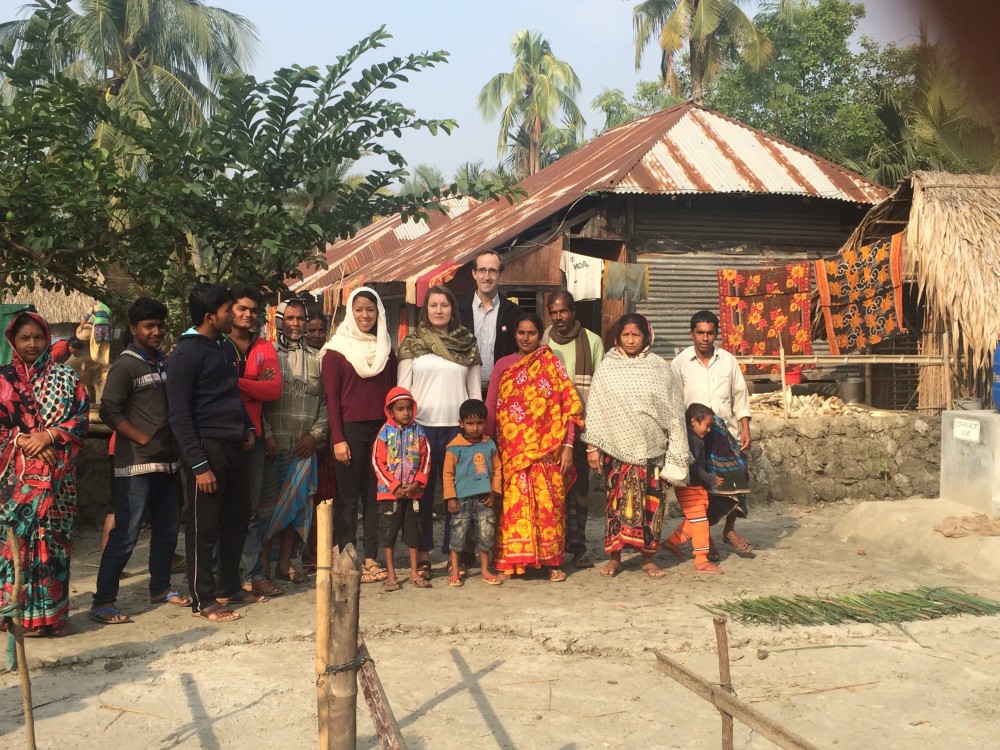Eliza Drury'16.5 and Kailani Acosta'16 traveled with Professor Timmons Roberts to Bangladesh last week to present research and visit sites in the country impacted by climate change. The students' travel was supported by the Institute at Brown for Environment and Society.

The conference was called Gobeshona, the Bengali word for "research." The goal of the conference is to improve the quality of research on climate change risks and adaptation actions in Bangladesh, and is emerging as an important international forum. The conference and the teams' fact-finding trip around the country were organized by the International Centre for Climate Change and Development, a leading global center.
Drury presented a paper prepared by the team of Drury, Acosta and Middlebury professor of geography Joseph Holler, which worked all summer to understand how Geographic Information Systems (GIS) can be used to national planning to prepare for climate change risks. That work was supported by a seed grant to Roberts from IBES.
The trip has spawned four projects for future engaged research with Bangladesh partners. First, ICCCAD director Saleemul Huq is leading interchange between the academic and think tank community on the one hand and the United Nations committees working on the issue of "Loss and Damage," an emerging area of the negotiations that seeks to somehow compensate or insure the poor countries for damage done by climate destabilization they did not cause. Brown's Climate and Development Lab will be leading a project on how that effort might be financed. Second, Roberts is working with Huq in supporting the Economic Relations Division of the Ministry of Planning of the Government of Bangladesh as they design a system to track climate adaptation funding in the country. Roberts has proposed at UN meetings for several years that such tracking systems are fundamental to the sustainability and effectiveness of climate spending.
Further, there are opportunities for Drury and Acosta to work with ICCCAD on the mapping of adaptation projects in Bangladesh, and with a major program of the Independent University of Bangladesh, which houses ICCCAD. The university's Vice Chancellor, Omar Islam, visited Roberts at Brown last semester to propose collaboration on a program where every student in the university spends two weeks in a village and conducts social surveys of residents. Kailani has been offered a one-year expenses paid research fellowship at ICCCAD upon her graduation in May.